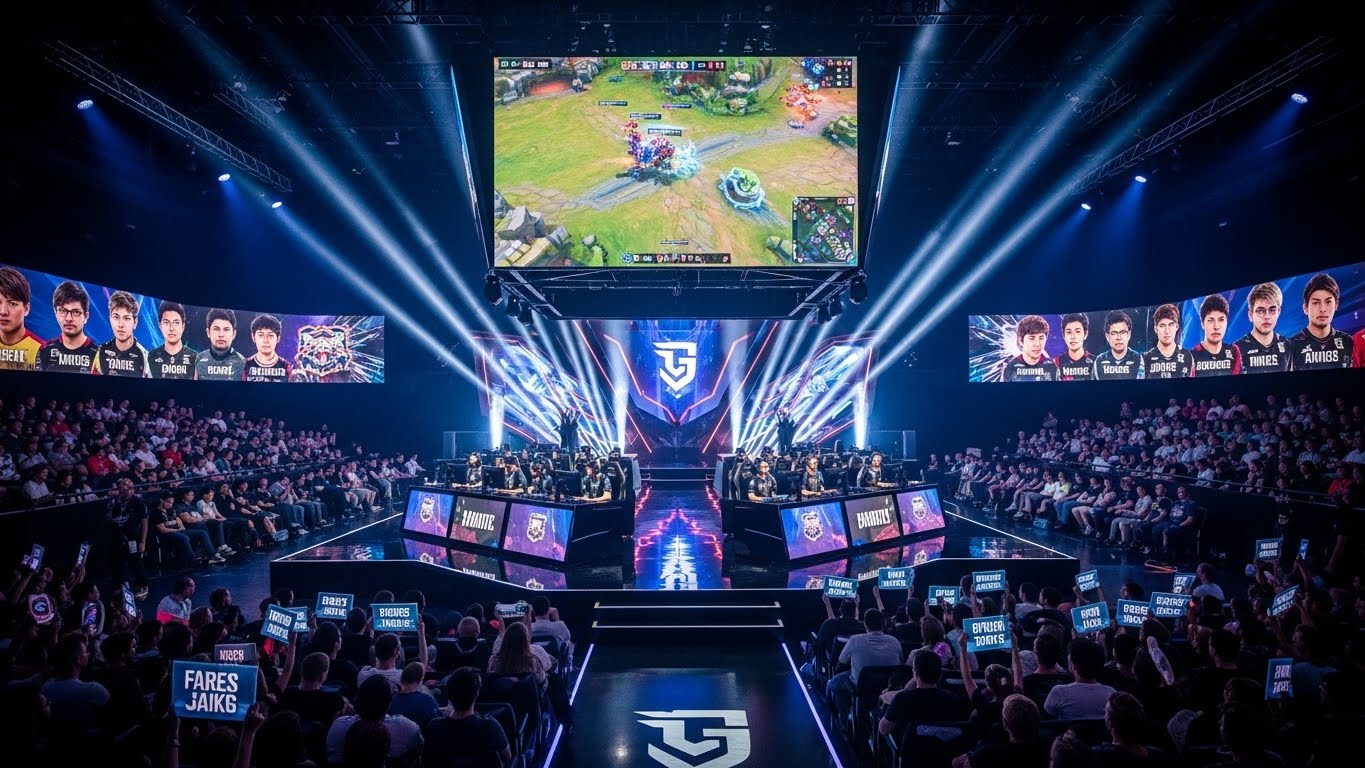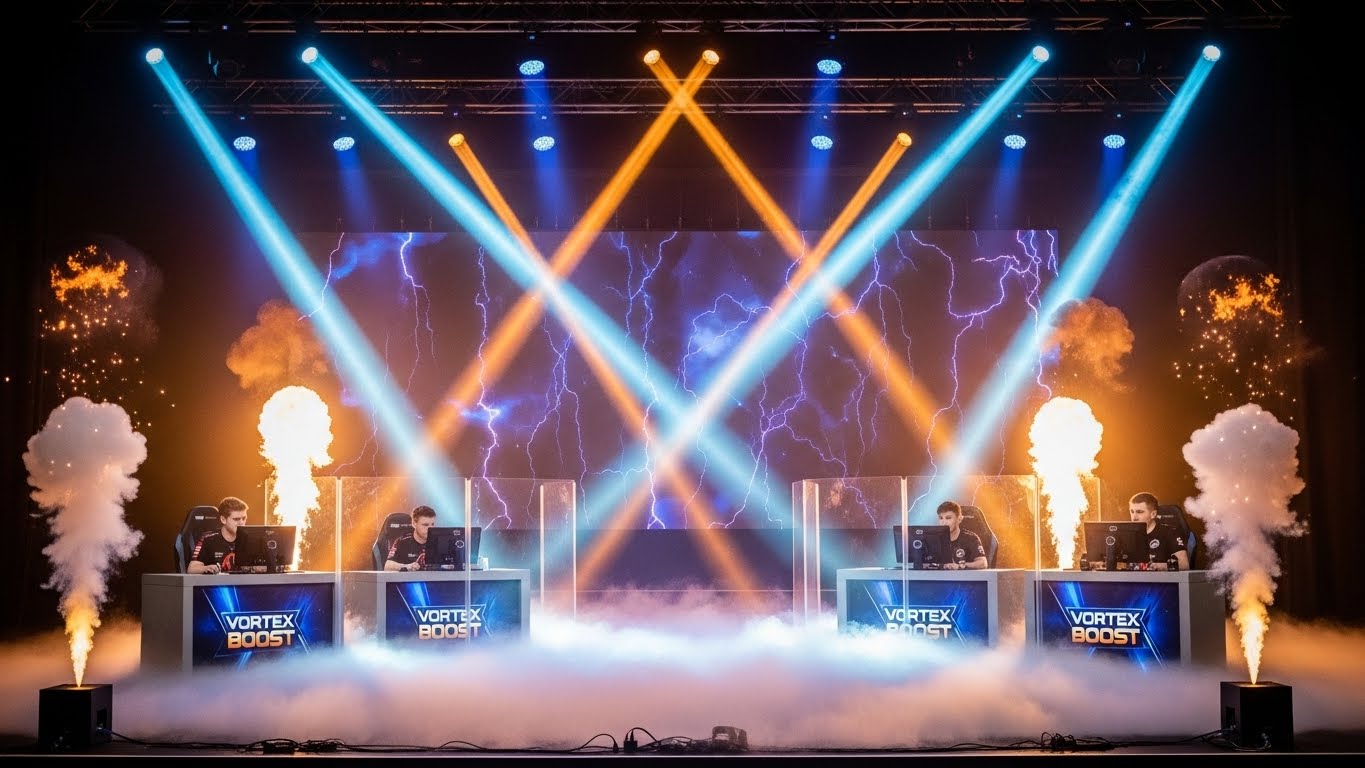Esports, or electronic sports, has emerged as one of the fastest-growing entertainment industries in the world. What began as casual gaming competitions among friends has evolved into a professional arena with millions of viewers, billion-dollar sponsorships, and international recognition. The esports ecosystem now rivals traditional sports in terms of fan engagement, prize money, and professional organization. Its growth is a testament to the increasing cultural significance of gaming and the transformative power of digital technology.
Esports is more than just playing video games competitively; it is a complex ecosystem of professional players, teams, tournament organizers, streaming platforms, sponsors, and a passionate global fanbase. It represents a new form of entertainment, a career path, and a cultural movement all at once. Understanding the history, development, and impact of esports provides insight into why it has captured the attention of millions worldwide.
The Origins of Competitive Gaming
The roots of esports can be traced back to the early days of video games. In the late 1970s and early 1980s, arcade games like Space Invaders and Pac-Man became competitive platforms where players could showcase their skills. High score competitions were some of the earliest forms of gaming tournaments, offering players recognition and bragging rights.
The 1990s marked a turning point with the rise of PC gaming and local area network competitions. Games like StarCraft, Quake, and Counter-Strike became the foundation for competitive play. Early tournaments were organized in gaming cafes, schools, and small community events. Though modest in scale, these gatherings set the stage for esports to grow into a professional industry.
The Birth of Modern Esports
The early 2000s saw esports gain legitimacy as an organized competitive field. Professional gaming leagues and large-scale tournaments began emerging, supported by growing internet connectivity and advanced gaming technology. South Korea became a global hub for esports, particularly with the rise of StarCraft: Brood War. Television broadcasts of gaming competitions drew millions of viewers, making professional gaming a respected career choice in the country.
Games like Counter-Strike, Warcraft III, and Dota became staples of competitive gaming worldwide. Dedicated esports organizations began forming, managing professional players and securing sponsorships. Prize pools increased, attracting the best talent from around the globe. Esports was no longer just a hobby; it had become a viable profession.
The Role of Online Platforms
Streaming platforms have been instrumental in the growth of esports. Platforms like Twitch, YouTube Gaming, and other streaming services allow fans to watch live competitions in real time, interact with players, and become part of the esports community. This direct connection between players and viewers has created a highly engaged global audience.
Streaming has also enabled amateur players to gain recognition, build fanbases, and even transition into professional careers. Content creation, live commentary, and interactive events have become integral to the esports experience, making it a multifaceted form of entertainment.
Popular Esports Titles
Esports covers a wide range of genres, each with its unique fanbase and competitive scene. Multiplayer online battle arenas (MOBAs) like League of Legends and Dota 2 focus on strategic teamwork, coordination, and long-term planning. First-person shooters (FPS) such as Counter-Strike: Global Offensive and Overwatch demand precision, reflexes, and tactical thinking.
Battle royale games like Fortnite and PUBG emphasize survival strategy and adaptability, while fighting games like Street Fighter and Super Smash Bros. showcase individual skill and reflex mastery. Each title offers a distinct competitive experience, catering to different types of players and viewers. The diversity of games has expanded esports’ reach, attracting fans with varying interests and gaming preferences.
Professional Players and Teams
Esports players are athletes in their own right. Professional gamers dedicate thousands of hours to practice, honing their reflexes, strategic thinking, and teamwork. The competitive nature of esports requires not only individual skill but also effective communication, mental resilience, and adaptability.
Teams function similarly to traditional sports franchises. They have managers, coaches, analysts, and support staff to ensure peak performance. Top esports teams operate globally, participate in multiple leagues, and secure sponsorships from major brands. Players achieve celebrity status, with fan followings rivaling those of traditional athletes.
The Economics of Esports
Esports has grown into a multi-billion-dollar industry. Revenue streams include tournament prize money, sponsorships, merchandise, ticket sales, streaming, and advertising. Major events like The International for Dota 2 and the League of Legends World Championship feature prize pools in the tens of millions of dollars, drawing international attention.
Sponsorships have become a critical aspect of the esports economy. Companies across industries—from energy drinks and tech hardware to apparel and media—partner with teams and tournaments to reach the highly engaged esports audience. Merchandising and branded content further amplify revenue, making esports a lucrative business model.
Esports and Global Culture
Esports is a global phenomenon, transcending cultural and geographic boundaries. Countries like South Korea, China, the United States, and European nations have developed competitive gaming hubs, each contributing to the industry’s growth. International tournaments foster cross-cultural exchange and create a sense of global community.
Esports has also influenced mainstream culture. Popular games, players, and tournaments appear in news, social media, and entertainment outlets. Professional gamers often become role models, inspiring younger generations to pursue gaming professionally or explore creative careers in digital media.
The Role of Technology
Technology is the backbone of esports. High-speed internet, powerful gaming hardware, and advanced software ensure smooth gameplay, fair competition, and high-quality broadcasting. Innovations like motion capture, virtual reality, and artificial intelligence are beginning to shape the future of competitive gaming.
Analytics tools help players and teams improve performance by tracking reaction times, decision-making, and strategy execution. Advanced broadcasting technologies enable immersive viewer experiences, including live statistics, multiple camera angles, and interactive features. Technology continuously enhances both the playing and viewing experiences, solidifying esports’ place in modern entertainment.
Esports in Education
Esports has even made its way into educational institutions. Colleges and universities now offer scholarships and programs for competitive gaming, recognizing the skills and dedication required to succeed in esports. These programs teach teamwork, strategic thinking, digital literacy, and career development.
High school esports programs are also emerging, fostering early talent and providing structured pathways into professional gaming. By integrating esports into education, schools acknowledge its legitimacy while equipping students with transferable skills relevant to the broader workforce.
Mental and Physical Demands
Professional esports players face significant mental and physical demands. High-intensity gaming requires sharp reflexes, quick decision-making, and sustained focus. Players must maintain healthy lifestyles to prevent burnout, eye strain, repetitive strain injuries, and mental fatigue.
Coaches, sports psychologists, and fitness trainers are now integral to esports teams, providing support for both performance and well-being. Recognizing the mental and physical challenges of esports ensures that players can compete at high levels sustainably while maintaining long-term health.
The Impact of Esports on Entertainment
Esports has transformed how people consume entertainment. Fans no longer passively watch; they actively participate through live chats, fantasy leagues, and interactive features. The competitive nature of esports adds excitement and drama, keeping viewers engaged over extended periods.
Streaming platforms and online communities create global ecosystems where fans connect, discuss, and celebrate their favorite games and players. The social aspect of esports strengthens community bonds, making it more than just a spectator sport. It is a cultural movement that combines entertainment, competition, and social interaction.
Challenges Facing Esports
Despite its rapid growth, esports faces challenges. Regulatory issues, fair competition, player health, and industry sustainability are ongoing concerns. Match-fixing, cheating, and doping have occasionally marred the integrity of competitive gaming. Standardizing rules and enforcing ethical conduct is essential for credibility.
Player burnout and career longevity are other pressing issues. Unlike traditional sports, esports careers can be relatively short due to the intense mental and physical demands. Providing support structures, education, and career planning is vital to sustaining the industry and protecting talent.
The Future of Esports
The future of esports looks incredibly promising. Emerging technologies like virtual reality, augmented reality, and artificial intelligence will redefine how games are played and experienced. Global expansion into new regions will attract larger audiences and create more opportunities for players, teams, and sponsors.
Esports will likely continue merging with mainstream entertainment, including films, music, and live events. Cross-industry collaborations will expand visibility and cultural relevance, making esports not just a form of competition but a cornerstone of digital entertainment culture.
Additionally, esports will continue to inspire innovation in broadcasting, game design, and fan engagement. Personalized experiences, interactive features, and immersive viewing technologies will create unprecedented entertainment possibilities. As the industry matures, it will solidify its position as one of the most influential sectors in global entertainment.
Conclusion
Esports has grown from humble beginnings to become a global entertainment powerhouse. It combines competition, creativity, technology, and community, offering experiences that rival traditional sports and entertainment forms. The industry continues to expand, driven by passionate players, dedicated fans, innovative technology, and professional organization.
Esports is more than a trend—it is a cultural and economic phenomenon shaping the future of entertainment. Its influence reaches beyond gaming, impacting education, media, and social interaction. As the industry continues to evolve, one thing is certain: esports has secured its place as a defining element of 21st-century entertainment, inspiring millions of players and fans around the world.
The rise of esports exemplifies how human ingenuity, digital technology, and the spirit of competition can converge to create a truly transformative global experience. From casual gamers to professional players, from online streams to international tournaments, esports is here to stay, redefining what it means to compete, entertain, and connect in the modern world.

